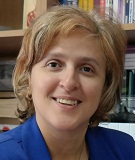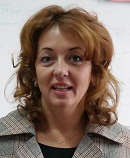
Plenary Lecture
QFD Based 3D Spiral Lifecycle Model for Startups Development


Professors Monica Leba & Andreea Ionica
University of Petrosani
Romania
E-mail: monicaleba@yahoo.com
Abstract: Nowadays we are witnessing an accelerated development of IT related technologies. All these bring novelty that improves the quality of life. In this context, the startups, formally associated only with Silicon Valley, conquered the entire world, creating a global innovation hub.
The startups world reflects the present times dynamics both from the business model perspective and the innovative technical products and services perspective.
Getting a business off the ground and into profitability, going from “idea to product” and “team to company” typically involves a number of stages, going through concept, pre-seed, seed/startup, early stage, growth and maturity.
There are well-known business models canvases for startups. We make a step forward and introduce a 3D spiral lifecycle model for startups development that includes a version development control and a link between the technical part and the business part, achieved by QFD (Quality Function Deployment) method.
This QFD based 3D spiral lifecycle model allows permanent adjustment to market requirements and continuous assessment of the degree of fulfillment of these requirements by the technical characteristics of the product in the current stage of development.
The development phases of startups are grouped in the model’s phases (http://www.wseas.us/e-library/conferences/2014/Gdansk/SEBIO/SEBIO-17.pdf), as follows:
• Vision & Mission corresponds to: Objectives, Customer Requirements, Classification based on Kano.
• Minimum Viable Product (MVP) corresponds to: Quality Characteristics, Technical Correlation Matrix
• Product Market Fit corresponds to: Relationship Matrix between Customer Requirements and Quality Characteristics
• Scale corresponds to: Evaluation, Benchmarking and Simulation
The QFD based 3D lifecycle model is made out of multilevel plane circles spaced by the offset. Each plane circle represents a version in the development of the startup and has its own radius representing the development costs involved in the version, related to the cofounders and venture angels, starting from own funding, through Crowd, Angel, VC (Venture Capital) funds all the way to IPO (Initial Public Offering) investors.
Brief Biography of the Speaker: Monica Leba: Received a BSc in System Control and Applied Informatics Engineering in 1998, a MSc in Information Systems and Technologies in 2007 and gained a PhD in System Control in 2002. She joined in 1999 the University of Petrosani. In 2015 became Full Professor of Control Engineering. She is also a Ph.D. supervisor in the field of Control Engineering. She is member of IFAC (International Federation of Automatic Control), Technical Committee 3.1. Computers for Control. She was Invited Lecturer at the University of Clausthal – Germany, University of Nancy – France and University of Malaga – Spain. Her general research interests are in information systems, applied informatics, algorithms design, modelling and simulation, computer and system control engineering. She took part and coordinated about 20 national and international research projects and grants and published about 100 scientific papers. She also presented plenary lectures in WSEAS conferences in Corfu, Greece, October, 2008; Istanbul, Turkey, June, 2009; Malta, September 2012; Athens, Greece, May 2013 Valencia, Spain, August 2013 and Tenerife, Spain, January 2014.
Andreea Ionica: Graduated the University of Petrosani as engineer (1992), as economist (2002) and PhD in Industrial Engineering (2004). She got a postgraduate degree in Enterprises’ Economy and Administration from Institut National Polytechnique de Lorraine, France (1998). She also graduated the course of Human Resources Management (1999). She is currently Full Professor in the Management Department at University of Petrosani where she teaches mainly in the areas of Management and Quality Management. She is also a Ph.D. supervisor in the field of Management and Engineering. Her research interests include: Quality Management Systems (QMS), TQM implementation, the study of customer - supplier relationship in the context of the QMS implementation. She activates in the field of quality management systems, being auditor and Quality Management Representative at the University of Petrosani. In the period 2010-2012 she coordinates a Grundtvig project with partners from Turkey, Romania, Nederland, Belgium and Germany. She participated as coordinator or member in about 10 national and international research projects and grants and published about scientific 100 papers. She also presented plenary lectures in WSEAS conferences in Malta, September 2012; Athens, Greece, May 2013; Valencia, Spain, August 2013 and Tenerife, Spain, January 2014.